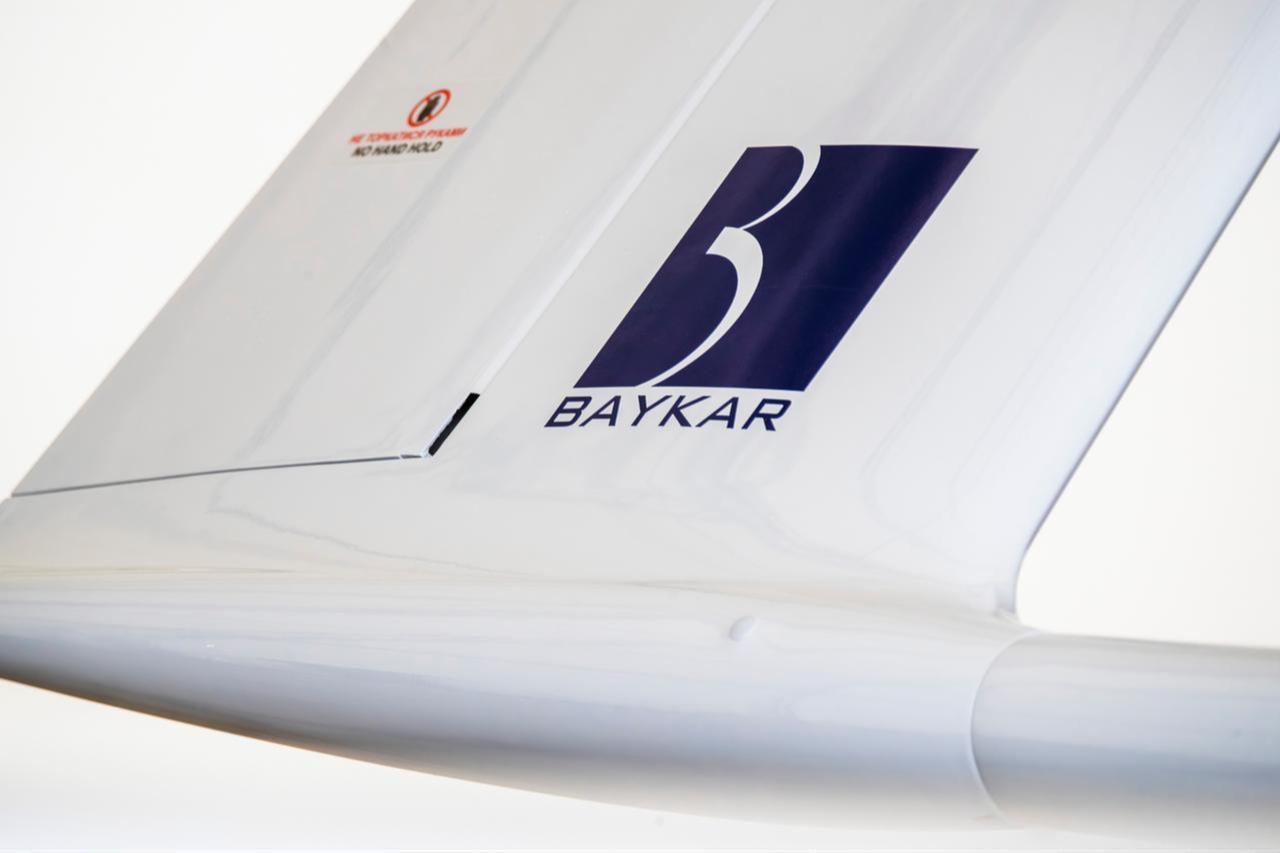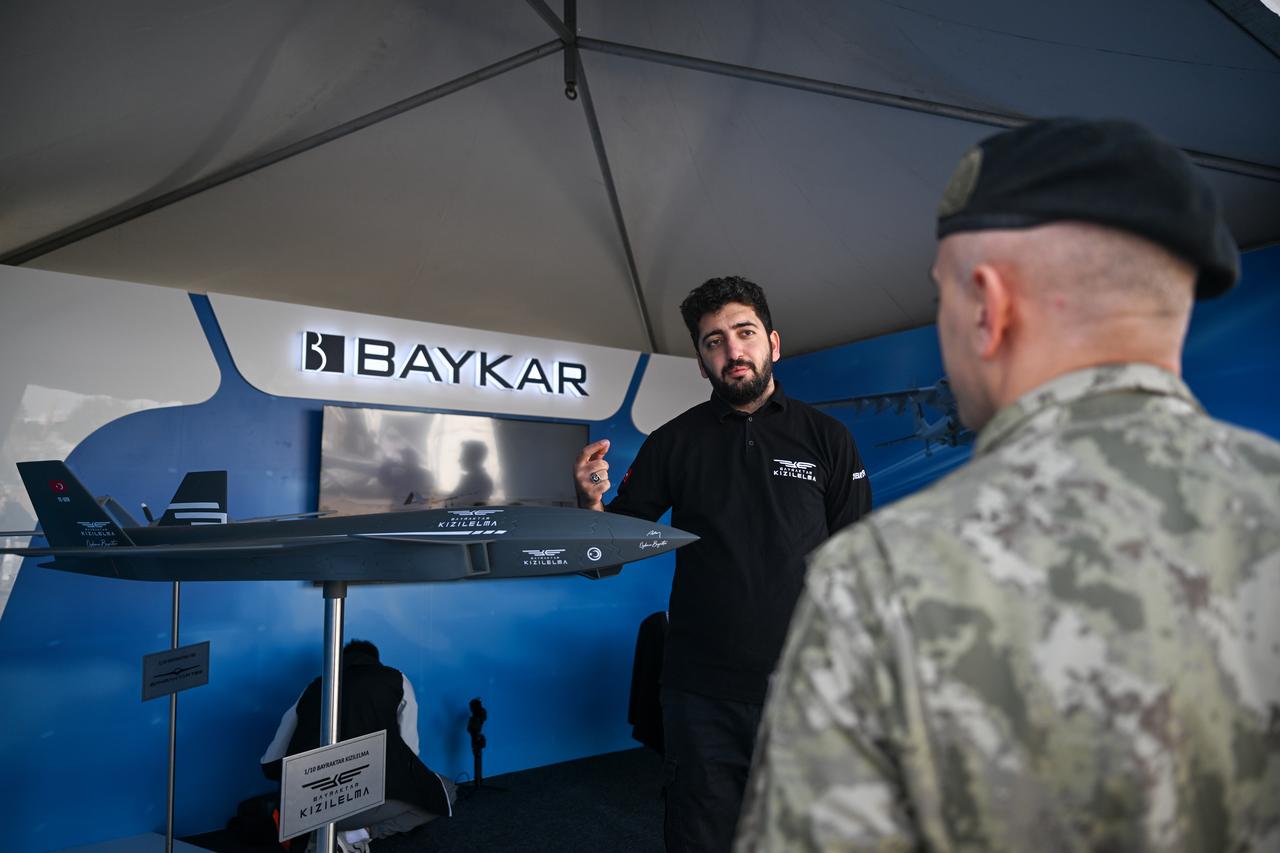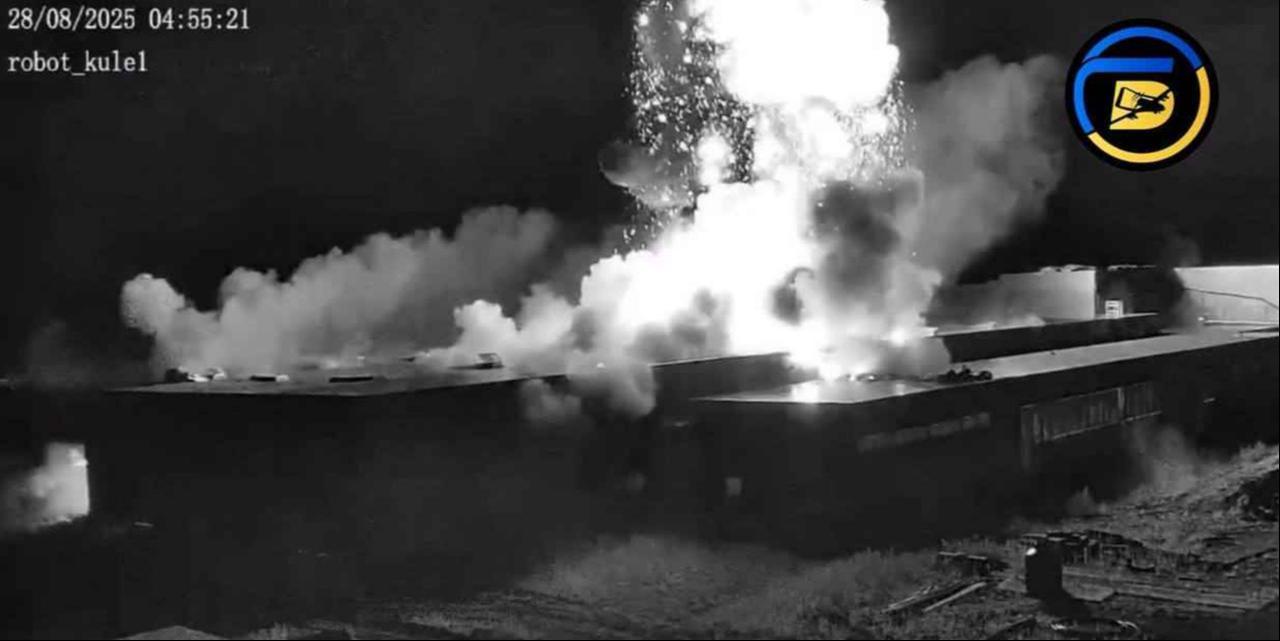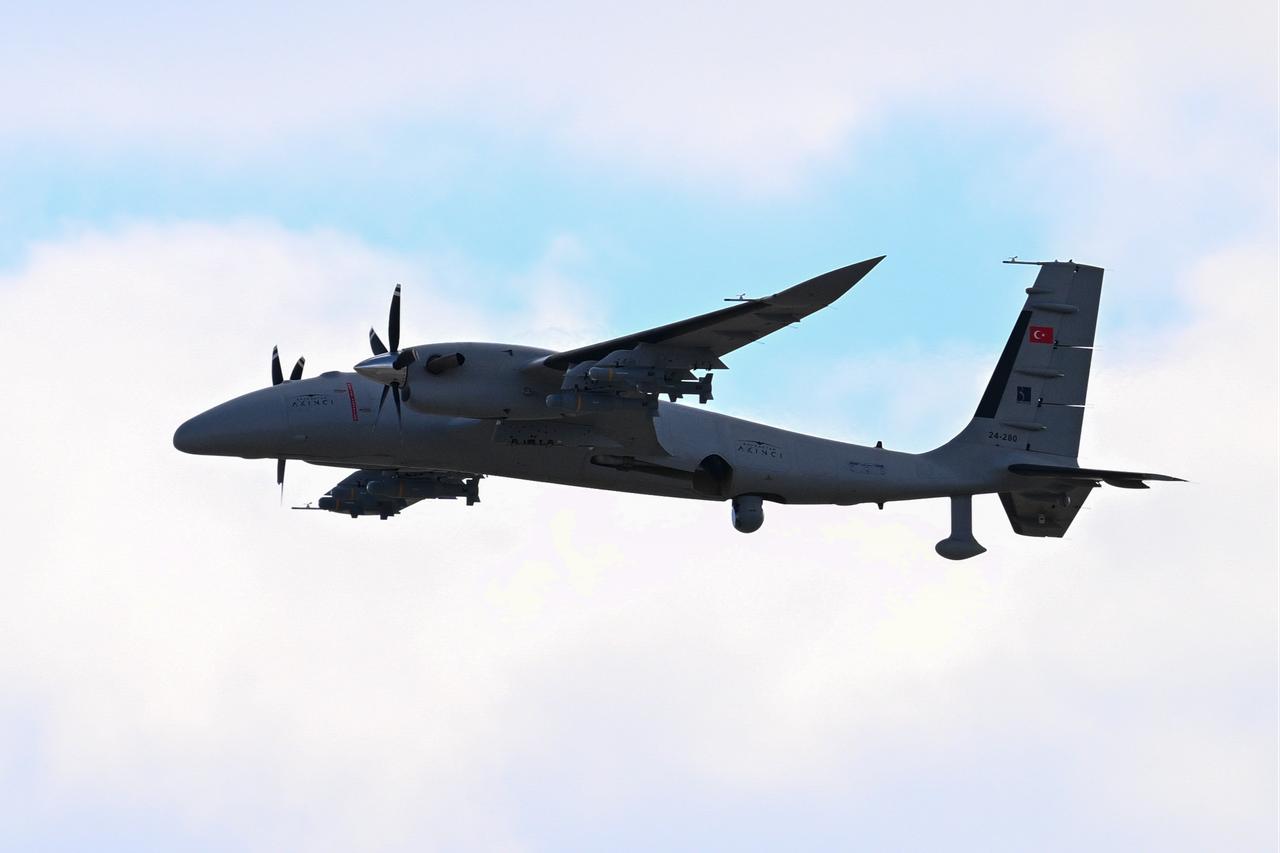
Baykar CEO Haluk Bayraktar confirmed the company will rebuild its Ukrainian manufacturing facility, which was damaged in a recent Russian attack, while revealing that the Turkish drone maker now controls 60% of the global combat UAV market and is three times larger than its nearest American competitor.
"Iron, concrete and buildings can be built anew. What really matters is our will and faith in this project," Bayraktar said in an exclusive interview with Ukrainian media outlet Ukrinform on Oct. 9.
"No missile can hurt our friendship," he noted.
The executive disclosed that damage assessment is complete and the company is moving forward as planned, despite structural and material damage to the facility. No casualties resulted from the attack, which Bayraktar called "yet another indicator of the ruthlessness that the Ukrainian people continue to face bravely every single day."
Baykar, which exports to 36 countries and generates more than 90% of its revenue from international sales, aims to transform from a supplier into a "strategic and indispensable technology partner in Europe's security architecture," Bayraktar said.

The company announced its Kizilelma unmanned fighter jet will enter the Turkish Armed Forces (TAF) inventory starting in 2026, with Bayraktar calling it a "revolutionary platform that rewrites the rules of air combat."
"There is already tremendous global interest and demand for Kizilelma. We are already working on a roadmap to properly meet these intense export requests," Bayraktar said.
The platform has reached an advanced stage with performance and verification tests covering various mission scenarios currently underway.
Baykar's relationship with Ukraine extends beyond commercial ties, with the company donating TB2 drones through international charitable fundraising campaigns after initially delivering the first export units in 2019.
"Our relationship with Ukraine goes well beyond a simple trade agreement. At the foundation of this relationship are our friendship, which focuses on Ukraine's total independence and territorial integrity," Bayraktar said.
Ukrainian engineers and technicians currently undergo training at Baykar's Istanbul headquarters in what Bayraktar described as "mutual experience and capability sharing rather than a one-sided training program." These personnel will form the core team for the Ukrainian facility.
The company continues using Ukrainian-manufactured engines in its Akinci and Kizilelma platforms despite war disruptions. "We are completely happy with that cooperation," Bayraktar said, while noting Baykar developed its own engine for the TB2 and partners with Turkish company TUSAS Engine Industries Inc. (TEI) for the TB3 platform.

Baykar's TB2 fleet has surpassed 1.25 million flight hours globally, with the drone setting an endurance record of 27 hours and 3 minutes.
The company employs more than 7,000 workers at its expanding Istanbul facility, with an average employee age below 30.
Through its internship program, Baykar welcomes more than 1,500 participants annually via Teknofest, the world's largest aviation, space, and technology festival. The company also operates Baykar Science High School to develop future technology leaders.
Bayraktar outlined an ambitious technological roadmap:

Baykar recently acquired Italian aircraft engine manufacturer Piaggio Aerospace, founded in 1884, and established a joint venture with Leonardo for unmanned technology development.
The company revealed plans to transform Türkiye into a "space state" through satellite constellation projects, orbital transfer vehicles, and eventually indigenous launch systems.
"Our objective is to transform Türkiye from a country that merely uses space technologies into a power that develops technologies in this field, sets the standards, and becomes a game changer," Bayraktar said.
Bayraktar expressed readiness to support Black Sea security initiatives, with the company's technologies "ready to serve the goal of ensuring that the Black Sea remains a sea of peace and stability."
The CEO noted that feedback from Ukraine's battlefield represents "the most valuable input for R&D," with constant 24/7 communication and data flow between Baykar and all users. This has transformed the TB2 into "a continuously evolving, living system" with significant capability improvements since 2014.
Current Baykar platforms include the TB2 and TB3 combat UAVs, the Akinci combat UAV, the Kizilelma unmanned fighter, the AI-based mini cruise missile Kemankes, and the CEZERİ flying car prototype.
The company's current export partners include NATO and EU members Poland, Romania, Croatia, and Albania, as well as strategic partnerships in the Gulf region with Qatar, the UAE, and Saudi Arabia.